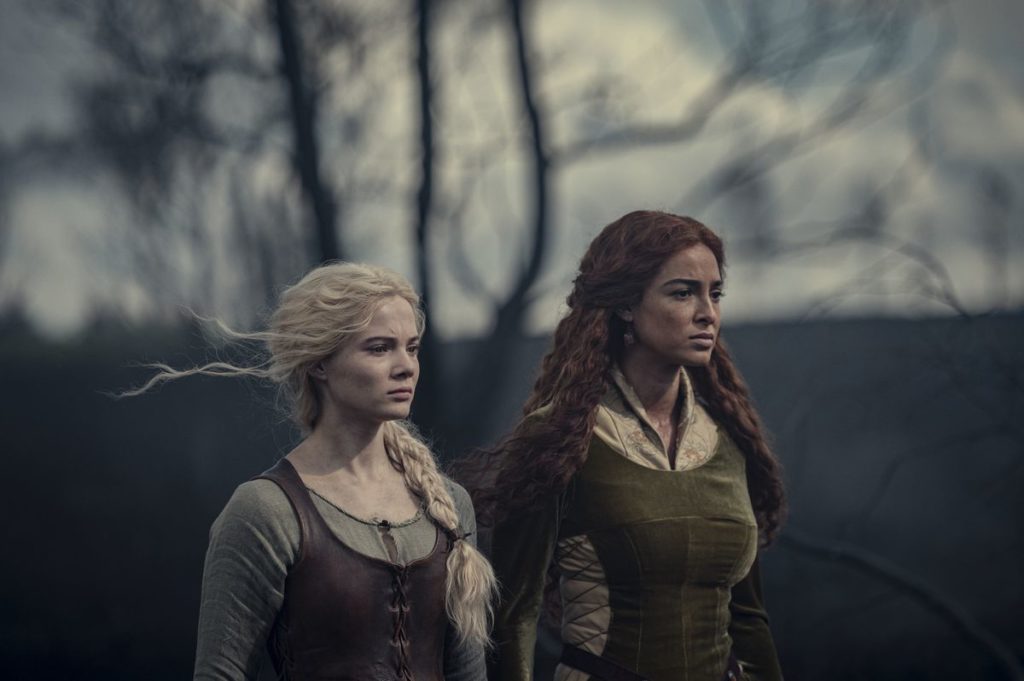When The Witcher was first announced, many were quick to announce it as the next potential Game of Thrones. Its first season, however, was an uneven, narratively messy story that juggled multiple timelines. Since then, there have been a couple more series debuts contending for the title of the next Game of Thrones, and it’s harder to tell which one might get the closest once the dust settles. As for The Witcher, its second season firmly establishes the series as a fantasy adaptation with a lot of promise and several good elements, but also laden with its fair share of flaws.
After the Battle of Sodden, Geralt (Henry Cavill) becomes the reluctant guardian of Ciri (Freya Allan) and takes her to Kaer Morhen, the keep where the last remaining witchers gather to spend the winter. Once there, however, Geralt has to deal with dangerous monsters drawn to Ciri’s presence. On the other hand, Yennefer has to deal with the apparent loss of her magic. She comes into contact with a malevolent entity called the Deathless Mother, who promises to give her power back if she agreed to do the Mother’s bidding.

One of the good things about season two is that there are plenty of monsters to fight.
It’s great to see Geralt’s combat skills on display, and also Ciri’s increasing agency as she trains to fight like a witcher. Ciri also gets a fair amount of development in the first half of the season, but she later becomes more of a prize that’s whisked from one location to the other as people pursue her and try to claim her. Both Cavill and Allan are great as their characters, carrying most of the show on their backs.
Anya Chalotra’s portrayal as Yennefer is decent, however, she gets laden with the baggage of powerlessness and then a side plot with Cahir that gets sidetracked as she comes upon Jaskier and then a dangerous mage who’s trying to find out where Geralt is. Her first meeting with Ciri is also complicated. She doesn’t readily form the bond of surrogate motherhood with Ciri as she does in the books. Rather, this relationship is brought about by a dramatic sacrifice in the season finale that somehow also restores her magic.
Geralt’s relationship with Ciri, while handled well, also isn’t given enough time in the beginning to develop.
Rather, we see Geralt already protecting her as though he has already adjusted to the role of Ciri’s adoptive father. Jaskier is also written as a more explicitly comedic character this time around.
Still, we get to see many new interesting characters such as Djikstra (Graham McTavish), Phillipa Eilhart (Cassie Clare), and Rience (Chris Fulton). A fan-favorite faction is introduced and linked to the secret antagonist of this season. We also get Kim Bodnia as Vesemir, however, his portrayal is a lot more ambiguous compared to the source material, which will probably rub some book fans the wrong way.
Like Wheel of Time, The Witcher season two also deviates significantly from its source material, although it does keep certain beats from the first novel, Blood of Elves. The main antagonist of this season, an analog of Baba Yaga, isn’t entirely well thought out. Still, she does make for a decent adversary in an entertaining season finale with big stakes.
Most of The Witcher season two is focused on setting up plot threads for the future.
Showrunner Lauren Schmidt Hissrich has promised that the third season will be the best yet. It’s better to temper our expectations at this point. Maybe The Witcher will finally click as a show and begin firing all cylinders. Although the second season was entertaining and a marked improvement over the first season, the show still has a long way to go.